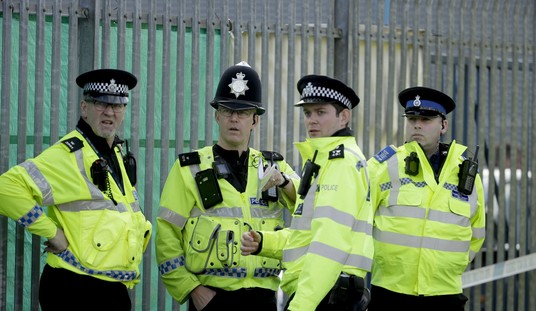Isn’t this guy supposed to be a populist? Yet here he is, wondering why the Republican Party’s powers-that-be won’t step in and somehow snuff a candidacy that’s grown inconvenient to him (or so he believes). Rand Paul could have stayed in, he argues, Rubio could have stayed in, Jeb Bush could have stayed in, but they all quit. Why shouldn’t Kasich be made to do the same? That’s sort of like asking why, if a bunch of struggling businesses fail, a different struggling business shouldn’t be made to close its doors too. Frankly, given the amount of anti-Trump sentiment within the GOP (especially among establishmentarians), handing Reince Priebus the power to forcibly end someone’s campaign might not work out for Trump the way he’s imagining.
Kasich’s strategy is straightforward: Hang around as long as possible, talk up his electability numbers versus Hillary to anyone who’ll listen, and hope against hope that somehow the delegates in Cleveland decide to turn to him after the convention deadlocks as the last non-Trump/non-Cruz standing. Calling that a pipe dream is putting it gently, especially given the shared ambition by Trump and Cruz to rewrite Rule 40 so that it bars Kasich from the nomination, but he’s not wrong to sense that many delegates at the convention will want someone other than the top two this summer. Why not continue to try to pile up delegates and increase your leverage over the outcome? That’s why Kasich is still running and that’s why Trump is wrong to compare his chances to, say, Rand Paul’s.
Trump’s not necessarily wrong, though, to think that Kasich is hurting him more than he’s hurting Cruz — at least in some regions. Dave Wasserman tried to game that out a few weeks ago, looking at jurisdictions so far where Kasich and Marco Rubio had combined for a bigger share of the vote than Trump and Cruz did. Turns out those districts are blue, by and large, and well educated — coincidentally, the same basic demographic profile as many jurisdictions in the northeast, where Trump is hoping to pile up delegates in the coming weeks. In particular, I think, what Trump’s worried about here is Kasich cutting into his margins in New York, which awards its delegates proportionally by district unless the winner of the district reaches 50 percent, in which case it becomes winner-take-all. Trump needs to win big in New York to keep his shot at 1,237 alive, especially if he does badly tomorrow night, yet here’s Kasich poised to play spoiler. In fact, look at the last few polls of New York and you’ll find Kasich at parity with Cruz or even a few points ahead. If you’re a Cruz fan, NY is almost a perfect argument for having Kasich in the race since it matters much more there for purposes of a brokered convention to hold Trump under a certain number than it does to maximize Cruz’s take. If Kasich can win some votes that otherwise would have gone to Trump — and, importantly, if he can combine with Cruz to hold Trump under 50 percent in various congressional districts — that’s a very good outcome for anti-Trumpers. And Trump seems to know it.
Exit question via Rich Lowry: Why hasn’t Marco Rubio endorsed Cruz yet? I’m guessing it has something to do with the play Rubio’s making to keep his delegates bound to him on the first ballot at the convention, which would be another roadblock to Trump en route to 1,237. I won’t even pretend to know how different states deal with the process of unbinding delegates but it may be that Rubio endorsing another candidate would be deemed disqualifying in some and his delegates therefore freed, with some of them eventually migrating towards Trump. That’s a bad result for an anti-Trumper like Rubio. He may feel forced not to formally endorse Cruz for that reason, although he could certainly be talking up Cruz more right now than he’s otherwise doing.








Join the conversation as a VIP Member